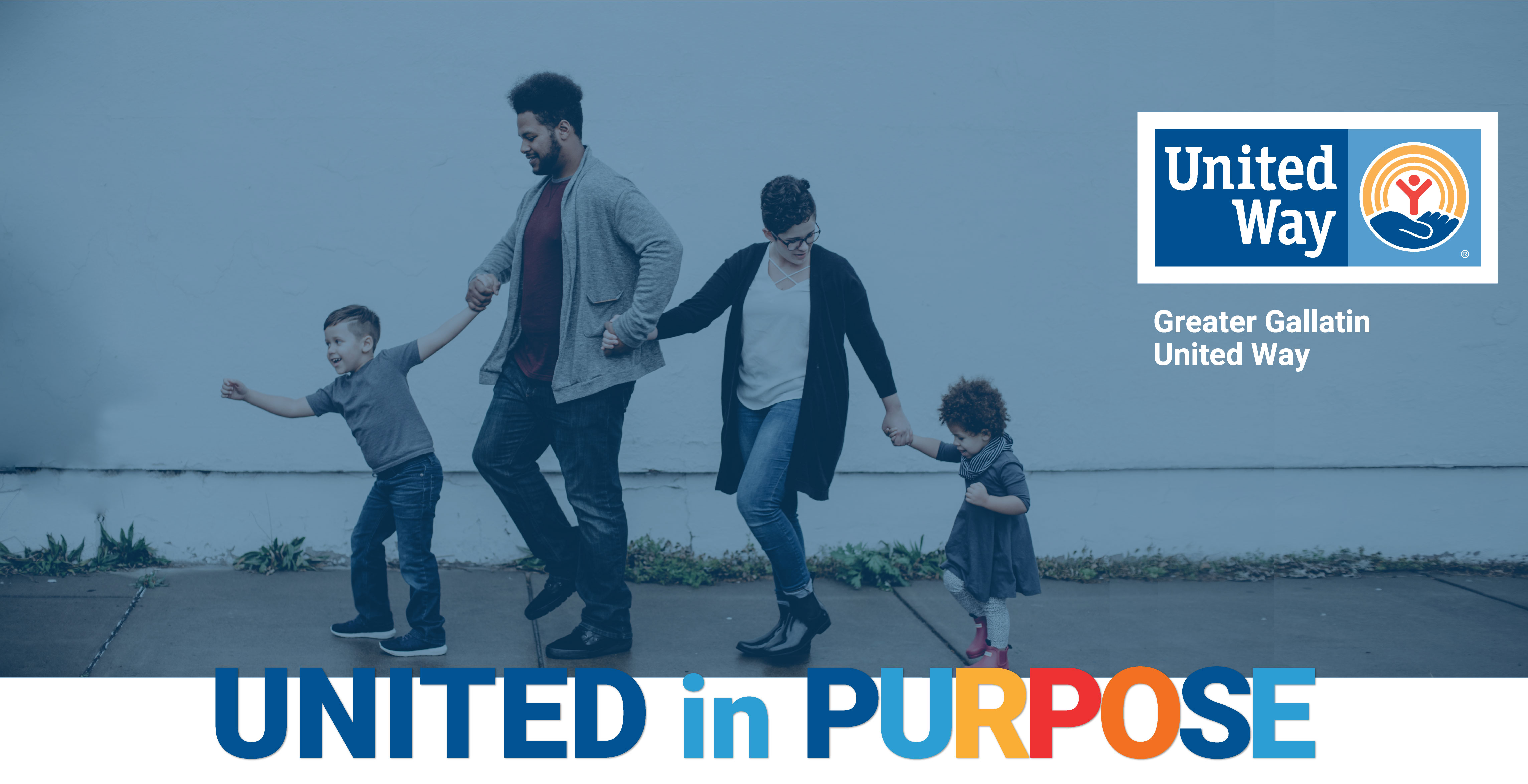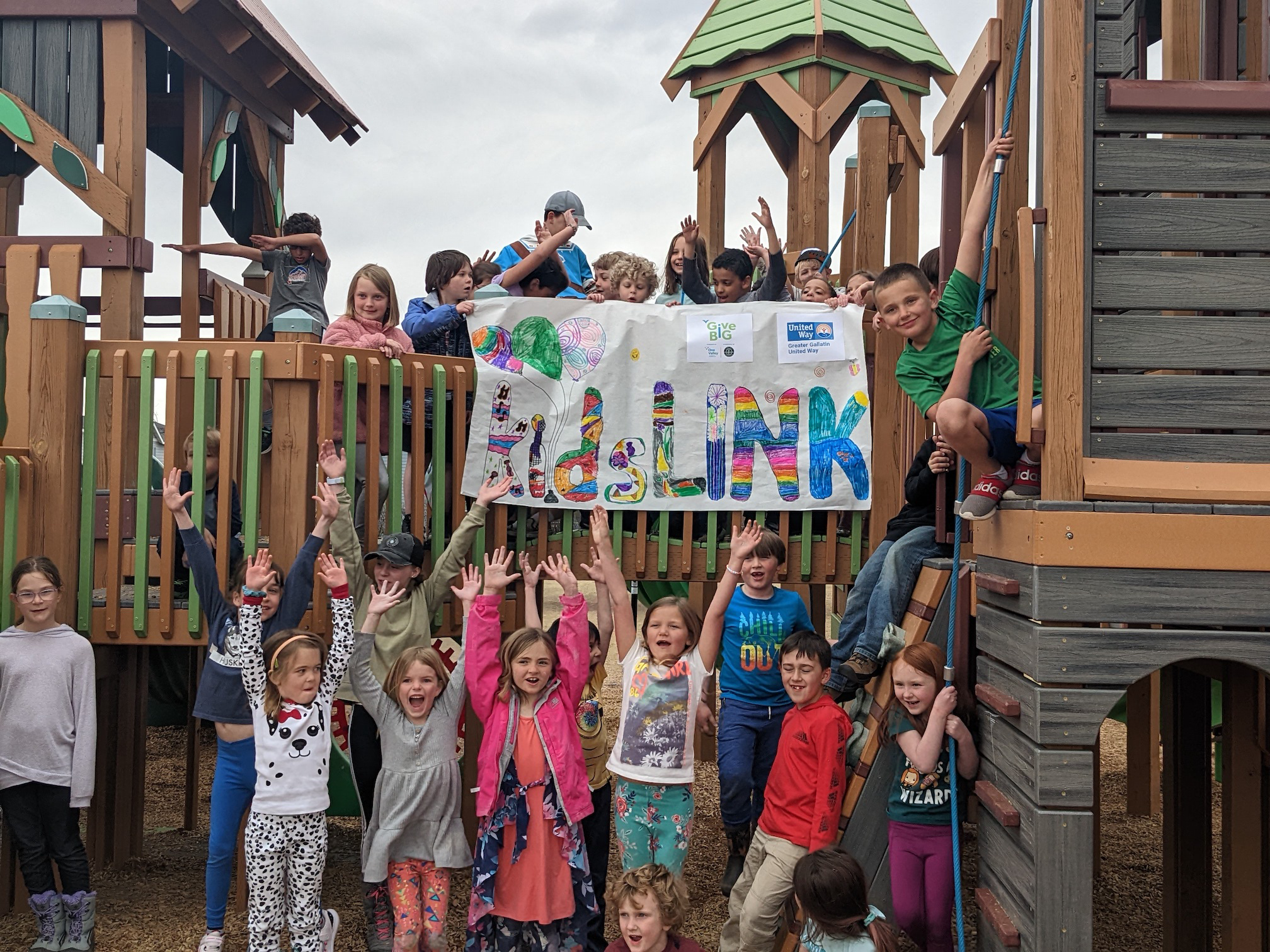Together we are improving lives and building stronger communities
 In order to reach our goals and outcomes, Greater Gallatin United Way employs strategies that include funding direct service programs; implementing and delivering programs; advocating for policy change and performing outreach; leading collective impact coalitions; providing professional development and learning opportunities; and promoting and engaging volunteers.
In order to reach our goals and outcomes, Greater Gallatin United Way employs strategies that include funding direct service programs; implementing and delivering programs; advocating for policy change and performing outreach; leading collective impact coalitions; providing professional development and learning opportunities; and promoting and engaging volunteers.
Community Impact Fund is a strategy that encourages innovation by supporting pilot programs/projects (new solutions), sustains and enhances existing programs and services (proven solutions), and supports collective impact work to achieve community impact goals that are outlined in GGUW's 2018-2023 Strategic Plan.
Volunteer Grant Evaluator Sign-Up Closed - Thank you!
Awarding grants via the Community Impact Fund, is just one strategy GGUW uses to tackle priority community issues surrounding Basic Needs, Behavioral Health & Mental Well-Being, Child & Youth Success, and Senior Stability. Through our fundraising efforts, donations from generous individuals, employees through payroll deduction, businesses, foundations, and more are invested into local programs. We are proud to partner with these local organizations to address community challenges and deliver vital programs focusing on health, education and financial stability/income throughout Gallatin, Madison, Meagher and Park Counties. These organizations and programs are central to Greater Gallatin United Way working for community change and improving lives. We support nonprofits’ work with resources including advocacy, volunteers, best practices, board training, and where strategies align, funding.
Funding decisions are made in conjunction with the organizations own program strengthening, capacity building, public policy, collaborative efforts and community initiatives that seek to find solutions. Many traditional and non-traditional partners, working together to be innovative, creative, flexible, and measurable, are needed to make lasting positive changes in our community conditions.
GGUW Board of Directors actively reviews areas of focus toward which the organization will direct funds raised in our annual fundraising campaign. Resources may be invested within the organization to advance community priorities or externally through a competitive grant process.
Funding priorities are based on a variety of tools including community assessments, focus groups, surveys, GGUW's strategic plan and information gleaned through the grant application process. Ultimately, GGUW is guided by the desired outcomes of the community.
GGUW's annual Community Impact grant is community-driven and volunteer-based with a focus on improving lives. The process is open, competitive, accountable, straightforward, and user-friendly.
Community Impact Grant Application Eligibility
Grant cycle
- Not-for-profit status: The organization must be in existence as a not-for-profit for a minimum of one-year at the time of application, operating under tax-exempt status as provided for by the Internal Revenue Service, and governed by written by-laws in accordance with Montana law.
- Mission: The organization’s purpose, approved by the organization’s Board, should be formally and specifically stated in a mission statement and be human service based.
Organization(s)/Program(s) for which funding is requested must:
- be consistent with its stated organization mission
- align with GGUW Community Impact Areas and Goals outlined in 2018-2023 Strategic Plan
- have a substantial presence in Gallatin, Park, Madison, and/or Meagher Counties
- have strong governance
- demonstrate effectiveness, experience and capacity using measurable outcomes
- documented quantitative goals
- have robust financial systems in place
- be able to demonstrate financial need
GGUW identified the following 4 Community Impact Areas as priority needs for Gallatin, Madison, Meagher and Park Counties that can be addressed through community partnerships.
Click for 2018-2023 Strategic Plan
I. Improve Basic Needs - All community members experience an improved quality of life because more people's basic needs are being met.
At risk community members have:
- food security;
- affordable housing;
- access to affordable quality child care; and
- access to community resources.
II. Improve Behavioral Health & Mental Well-Being - Our community is healthier and more resilient due to a shift to a new collective mindset and understanding of behavioral health / mental well-being and how to improve whole-person health.
- Normalization and understanding of behavioral/mental health as a component of whole-person health.
- People have learned to recognize signs and symptoms of mental health and illness.
- People know how to get help and are willing to reach out.
- Mental healthcare is readily available.
- People contribute to others’ well-being.
III. Improve Child & Youth Success - Children enter school ready to succeed, thrive in elementary school, are prepared for middle school and high school, and graduate on time. All children:
- are ready for kindergarten;
- are reading at or above grade level by the end of third grade
- have access to affordable quality early learning environments that nurture growth among all the early childhood domains, 0-5 years; and,
- have access to affordable safe nurturing place during out-of-school time, 5+ years.
IV. Improve Senior Stability - Our community is addressing current senior needs and is preparing for future demands.
- Our community respects seniors's abilities to make life-changing decisions for themselves.
- Seniors feel independent in their lives.
- Seniors are valued as active community members.
- Seniors are comfortable that their physical and mental well-being needs are being addressed.
- Seniors receive necessary care, particularly those unable to live financial independent lives.
Successful Grant Application Requirements (in addition to online grant application) must include:
- Most current IRS Tax Determination letter
- Previous year’s revenues less than $250,000: Previous completed fiscal year Financial statements and current year-to-date Financial Statements (include Balance Sheet and Statement of Activities)
- Previous year’s revenues greater than $250,000: Most recent Audit and current year Financial Statements (include Balance Sheet and Statement of Activities)
- IRS 990 or 990EZ that matches the same year as the completed Financial Statement or Audit
- Budgets for organization and for program(s) applying for funding
- Presentation - A representative(s) of the organization is required to take part in a 20 minute presentation to a small group of volunteers. GGUW will contact organizations with presentation date, time and location.
Community Impact Schedule
- Grant Application Opens - March 26, 2019, 12:00 Noon - Online grant application will open at 12:00 Noon HERE.
- Volunteer Grant Evaluator Recruitment Opens - March 26, 2019 - If you are interested in volunteering as an evaluator for our grant process, please contact Sylvia or call 406.587.2194.
- Grant Applicant Information Meeting - March 28, 2019, 4:00 to 5:00 pm at GGUW - An invitation will be sent. This is not mandatory, but can be helpful for first-time applicants. Please RSVP to Marjorie.
- Grant Application Closes - April 19, 2019, 5:00 PM
- Volunteer Grant Evaluator Application Deadline - April 22, 2019, 5:00 PM
- Volunteer Grant Evaluator Training - April 24, 2019, 12:00 to 1:00 pm at GGUW - This is mandatory for first time grant evaluators. If you are unable to attend, we can work to arrange a separate training.
- Volunteer Grant Evaluators review and score assigned grant applications on own time - April 24 to May 15
- Volunteer CPA Grant Evaluations Deadline - May 7, 2019 - Performed by Rudd & Company
- Grant Applicant Presentations - May 15, 2019, 5:30 to 9:00 PM - Schedules will be emailed to each applicant. We try our best to accommodate time requests. 20-minute presentations occur every 20 minutes. (Prior to attending presentations, volunteer grant evaluators should have completed entire evaluation form, except presentation section)
- Volunteer Grant Evaluations Complete and Submitted Online - May 17, 2019, 5:00 PM
- Greater Gallatin United Way Board of Directors Vote on CI awards - June 6, 2019
- Grant Award Notifications (Award Letter and SOA) - Start June 10, 2019
- Fund Distribution - Begins July 1, 2019 - Payment schedules are provided with Award Letters and SOAs.
Community Impact Volunteer Roles
Community Impact Committee Chair
- Preside over the Community Impact Committee for a term of two years
- Member of the GGUW Board of Directors
- Facilitate the preparation and presentation of final investment recommendation for disbursement of GGUW Community Funds to the Board
Board Members, Donors and Volunteers
- Attend all meetings required and be prepared to read grants, complete evaluation forms, and prepare any questions
- Report to Community Investment Chair
- Disclose any possible conflicts of interest
- Respect confidentiality of information, program efforts, and the process
- Do not micromanage; be careful of bringing outside information to the table
Financial Review Team
- Accountants and others with comprehensive knowledge of financial statements of non-profit organizations.
- May not review any organization with which they have a conflict of interest
- Completes evaluation forms regarding the financial status of each applicant organization
Confidentiality/Conflicts of Interest
-
All information gathered from applicants is for use in the review process only. A Confidentiality and Conflict of Interest statement will be signed by each participant. A breach of confidence could result in damage to the credibility of the agency and GGUW, as well as cause a break in positive relations.
All discussions and comments should be objective and fair. GGUW values community investment procedures which are fair, responsible, free of personal bias, and which reflect the stewardship role which donors have assigned the organization.


